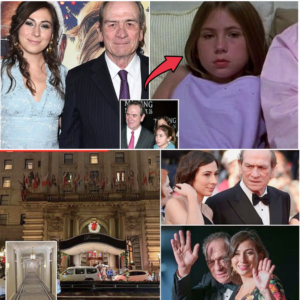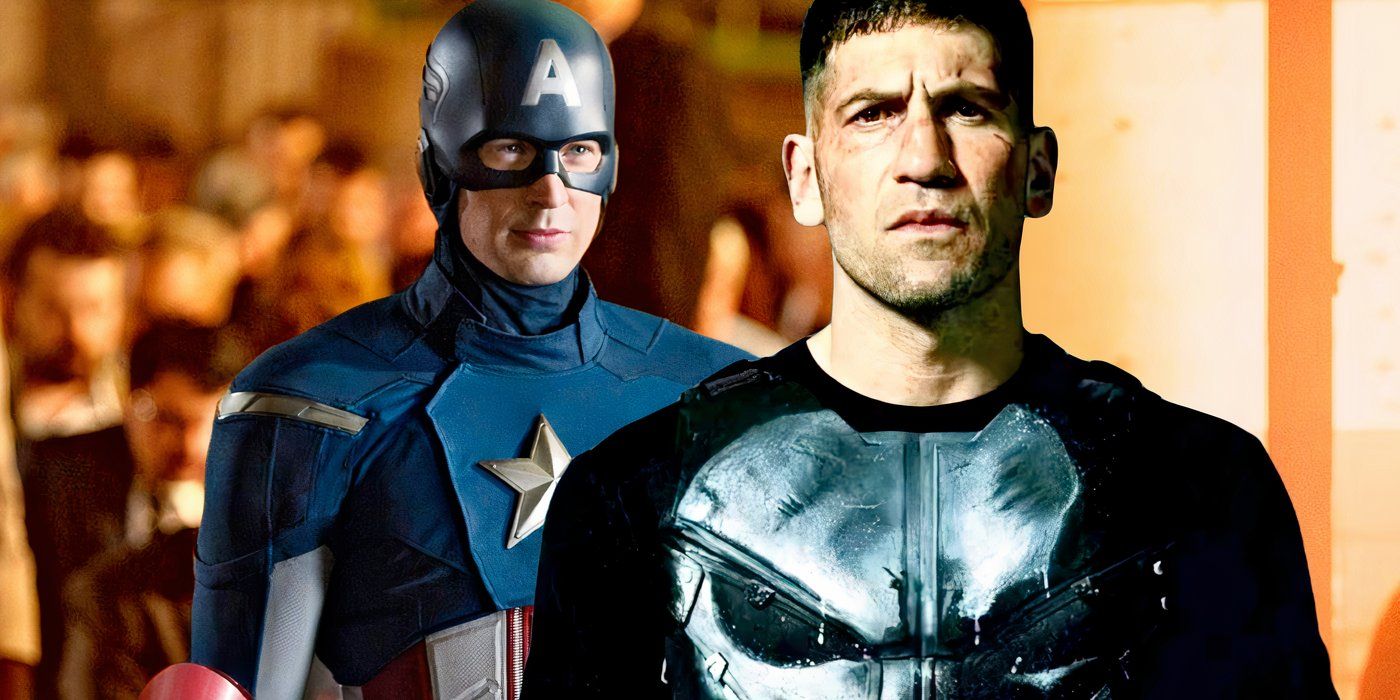
With the Punisher returning to the Marvel Cinematic Universe in Daredevil: Born Again, Marvel has the ideal opportunity to explore one of Captain America’s most complicated legacies. Known for his brutal and uncompromising approach to justice, the Punisher re-enters the MCU in Marvel’s Daredevil: Born Again. Frank Castle’s respect for Captain America in the comics has often shaped his vigilante mindset, making his return to the MCU an intriguing point to explore how Steve Rogers’ choices may have inspired some darker paths.
Daredevil: Born Again is a revival of the Netflix Daredevil series, which starred Charlie Cox as Matt Murdock, the blind lawyer turned vigilante. In Daredevil, Jon Bernthal appeared as Frank Castle, quickly earning his own solo series. Originally produced by Marvel Television, these were briefly excluded from the MCU’s official continuity after their cancelation. However, with Marvel Studios reintegrating previous Marvel TV series back into its canon, Daredevil and related characters are officially back in the MCU. Notably, Bernthal reprises his role as the Punisher, solidifying his place in the MCU and bringing his character’s fierce moral code – and its connection to Captain America’s legacy – into sharper focus.
The Punisher Always Looked Up To Captain America in the Comics
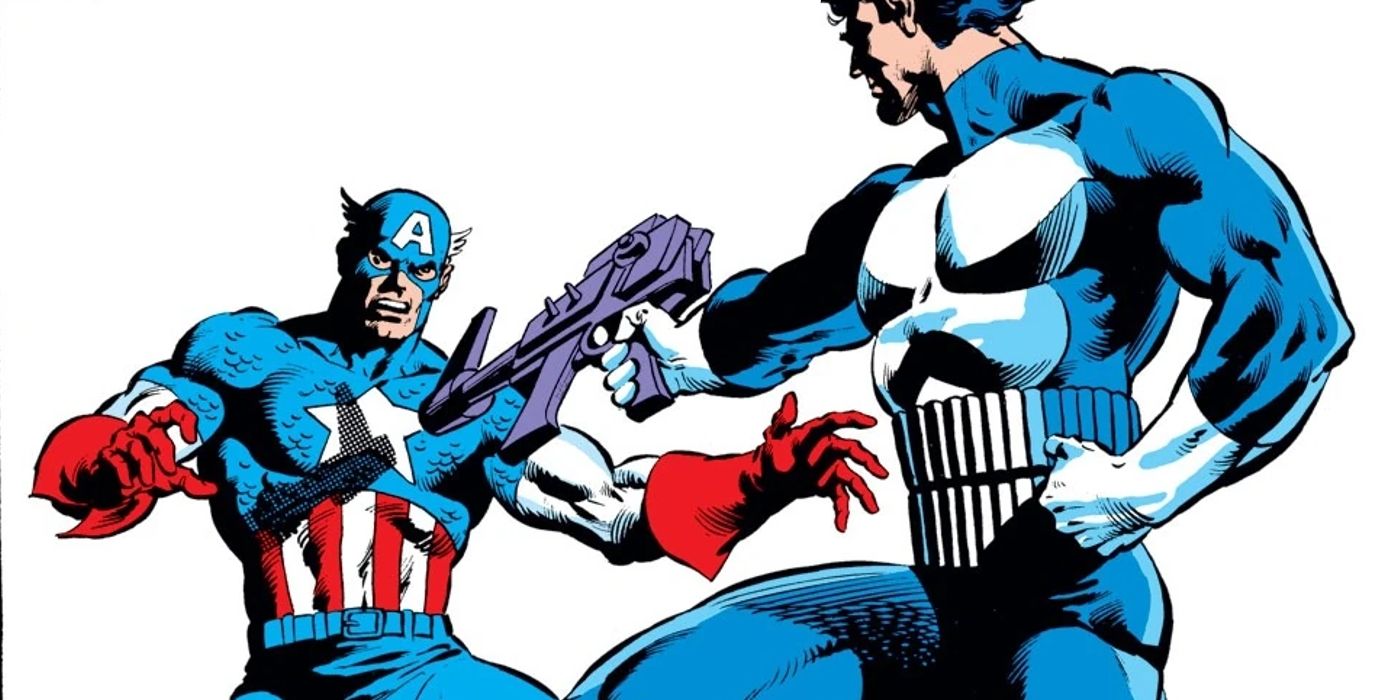
In the comics, Frank Castle has consistently admired Captain America as the ultimate soldier, someone who stood unwavering against evil. Unlike many heroes who rely on fantastical superpowers, Captain America’s strength and courage always resonated with Frank, a former Marine. To him, Steve Rogers was a living symbol of patriotism and military excellence, a figure who fought for justice with honor. For Frank, whose life and values were forever changed by his traumatic military experiences, Cap represented what he could have been under different circumstances.
Frank’s view of Captain America wasn’t just about heroism but about the disciplined, war-hardened soldier fighting tirelessly for a cause. In many ways, this admiration was Frank’s way of connecting to a piece of himself he lost along the way. Despite Cap’s disapproval of Castle’s brutal tactics, the Punisher continued to regard him as an ideal hero, someone who epitomized the virtues of a soldier committed to justice.
Captain America’s Anti-Registration Stance Inspired Frank Castle’s War on Crime
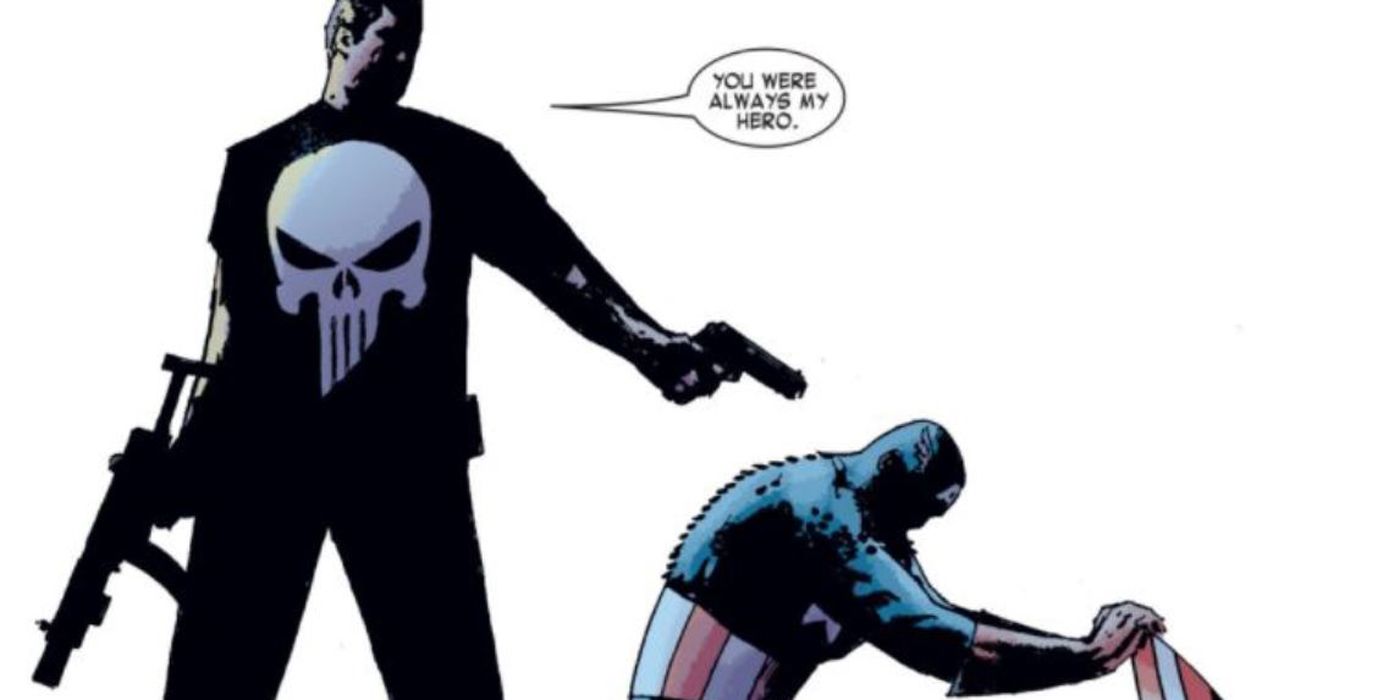
Captain America’s opposition to the Superhero Registration Act in Marvel’s Civil War was a watershed moment for Frank Castle. During the Civil War arc, Captain America led the resistance against the government’s attempt to regulate and control superheroes, advocating for freedom over enforced compliance. For Frank, who operates outside the law, Cap’s anti-registration stance symbolized the ultimate validation of his own war on crime. He saw Steve’s defiance as a call to individual moral judgment, believing that even heroes must answer only to their conscience, not to bureaucracy or restrictive laws.
Frank’s reverence for Cap reached new heights after Civil War, when he even attempted to claim Captain America’s shield. Castle’s actions were symbolic of his desire to embody his interpretation of Cap’s legacy, merging his independent and combative approach to crime with the ideals he thought Cap represented. For Frank, Captain America was a model of courage and a leader who valued justice above all, inspiring him to continue his brutal crusade, albeit with his own dark twist.
The MCU’s Punisher Is a Perfect Chance to Question Captain America’s Decisions
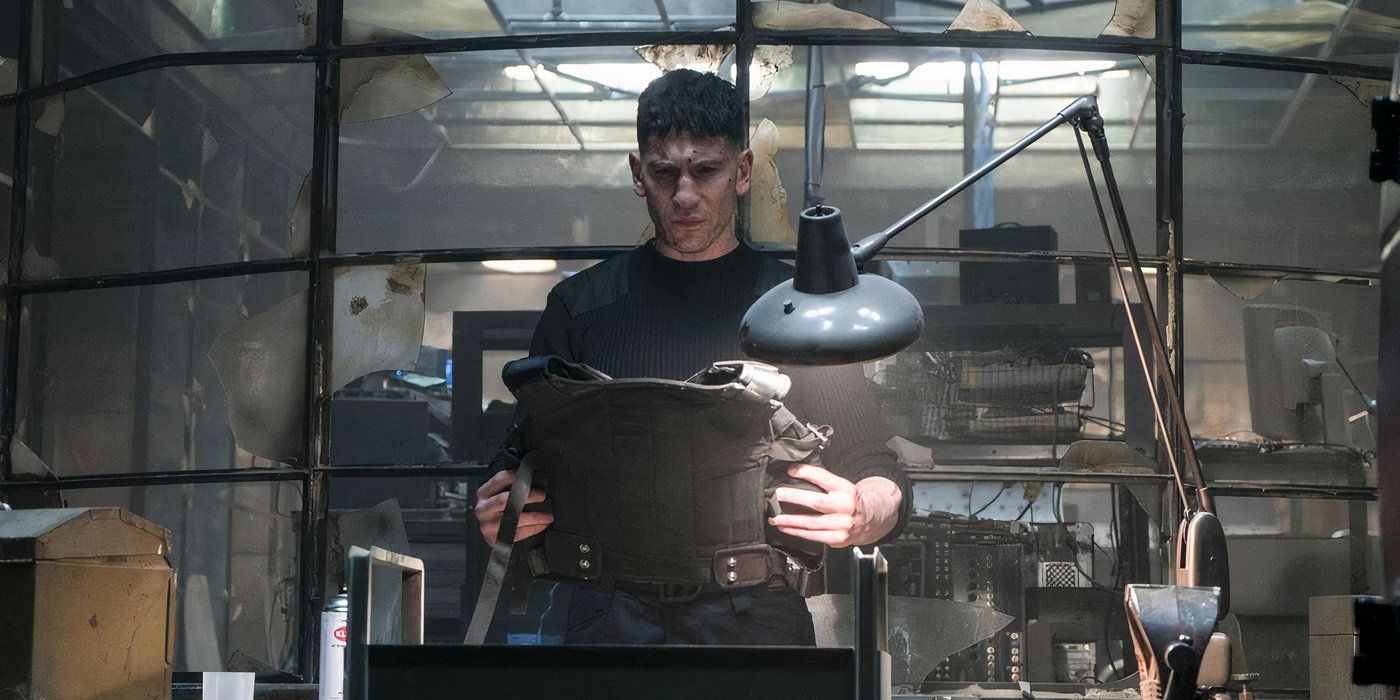
With Frank Castle returning to the MCU, Marvel has an opportunity to re-evaluate the legacy of Steve Rogers, especially after Captain America: Civil War. Steve’s choices throughout his tenure as Captain America raised questions about loyalty, independence, and the cost of unwavering ideals. Frank Castle’s admiration for Cap combined with his lethal brand of justice could offer a unique avenue to explore these themes in the MCU. If Castle’s interpretation of Captain America’s legacy leads him down a path that contradicts Cap’s core values, it would force the MCU to reckon with the unintended consequences of Steve’s influence.
Daredevil : Born Again is scheduled to premiere on Disney+ on March 4, 2025 as part of the MCU’s Phase 5.
In particular, Frank’s willingness to cross moral boundaries might serve as a cautionary tale, challenging the audience to question if Cap’s legacy has darker, unexamined facets. For instance, Steve Rogers’ opposition to regulation in Civil War could inadvertently endorse vigilantism in the eyes of someone like Punisher. By drawing this connection, Daredevil: Born Again could address complex issues about heroism, responsibility, and the potential fallout of idolizing ideals without examining their practical implications. In this way, Jon Bernthal’s Punisher return has the potential to cast a new light on Steve Rogers’ legacy, making for a layered and thought-provoking addition to the MCU.
